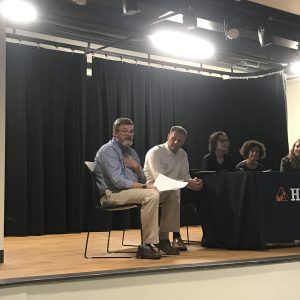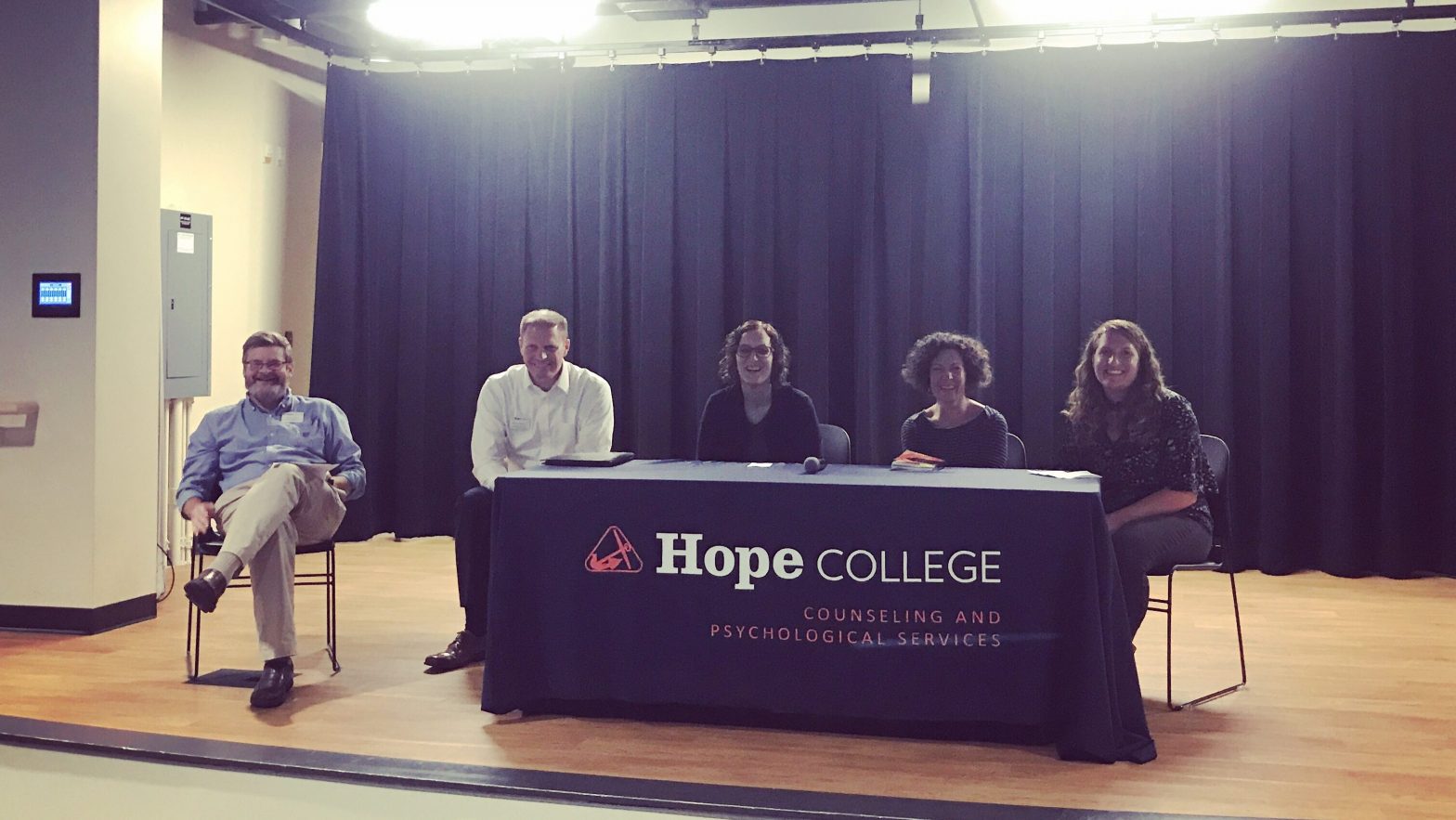A recap of September’s An Honest Conversation about doing too much.
How important is a double (or triple) major? What is a healthy level of involvement on campus? How much do I need to have on my resume for employers or grad schools to select me? How does all of this busyness affect my soul? In the most recent installment of their monthly series An Honest Conversation, CAPS brought together a panel of Hope staff members to address these and other student questions.
Alyssa Boss from Academic Advising and the Office of the Registrar noted that Hope students were very actively involved in high school–often participating in athletics, honors courses, and volunteerism. Just as they worked hard in high school to have a strong college application, they bring the same expectations to their college experience in order to have the most compelling resume or graduate school application. She asserted that what actually matters most to employers is your Hope College degree and evidence that you are applying what you have learned.
Think about the quality of your experiences rather than the quantity.
Shonn Colbrunn, the executive director of the Boerigter Center for Calling and Career brought both his current role and his past experiences in human resources to bear when he added that what employers are looking for on a resume are 1) an internship, hands-on experience, or a field placement that is related to your career interest, and 2) community service, leadership role(s) and/or varsity athletics to demonstrate commitment and balance.
Hoping two or more majors will help you stand out? Alyssa recommends that when you have an interest in two disciplines that work well together (e.g., business administration and communication) you might consider that path, but otherwise it may be less important than you think.
Ellen Awad, Director of Student Life, gave this advice: be a student first and make academics the priority. Since research supports that students who are involved on campus (e.g., organizations, employment, internship) have more positive academic outcomes, you are the best to assess and determine what you want your involvement to be. Ask yourself, “Does this activity contribute to your life in a positive way? Does it cultivate community and sense of belonging, satisfaction, and joy?” If opportunities arise when you and your friends both want the same leadership roles? Ellen suggests finding a way to still be a good friend. An additional thought from Ellen would be that it is both OK and recommended to re-evaluate your involvement yearly.
What is it that is nurturing my soul, and what is robbing my soul?
Jennifer Ryden, Chaplain
Jennifer Ryden, Chaplain of Discipleship from Campus Ministries, highlighted the Psalms to remind students that busyness can be an enemy to the soul. Habits can take the place of things that provide flourishing in our lives. Even if we determine that we do not want to be too busy, we find that our calendars are already full with “good things.” Jennifer likes to re-calibrate students struggling with busyness by asking, “How are you doing as a disciple of Christ?” Jennifer recommended soul-care or self-care for students’ continued growth.

Bill Russner, Clinical Director for CAPS, added that mindfulness is a way to address busyness. In a mindful approach, people learn to be fully present and experience what is going on in and around them. Mindfulness helps us choose intentionally without additional guilt or pressure, and has physical and mental health benefits.
Stepping down gracefully
Our panel members were not the only contributors to the event. A student in the audience asked how students can “step down eloquently” once they have over-committed. Hope staff encouraged honesty and face-to-face encounters to communicate that one has re-evaluated “and for me at this point in my life, this is not what is best for me.”
Many thanks to Ellen Awad, Alyssa Boss, Shonn Colbrunn, and Jennifer Ryden for their time and expertise. Additional thanks to Char Houben, MA, LPC and WMU Doctoral Student, for taking notes during the panel.
September’s event was the first of three monthly An Honest Conversation events this fall. Join us Wednesday, October 23 for Mental Health FAQ, and Tuesday, November 19 for Sleep at 7:00 p.m. in the Bultman Student Center’s Schaap Auditorium.


